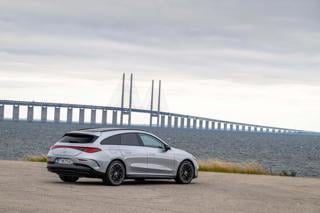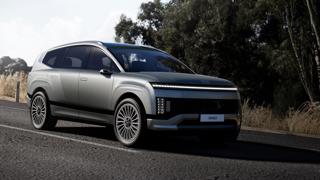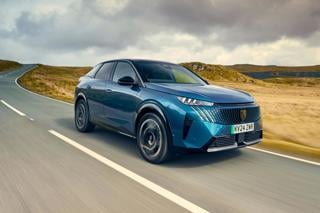The new Volkswagen Golf BlueMotion - which starts at £20,335 (RRP OTR) for the three-door and rises to £20,990 for the five-door, with specification based on that of the standard Golf S - is now available to order with the first deliveries expected in August.
Fuel economy has been improved by 15% with the new Golf BlueMotion offering 88.3 mpg on the combined cycle, and CO2 emissions have fallen to 85g/km.
Road tax won't be an issue as the Golf BlueMotion is in Band A, meaning it's zero pounds a year.
The reduction in the car's combined fuel consumption has been achieved through lightweight design (including 26kg less weight in the running gear and 37kg less in the body), engine-related modifications and a collection of other measures.
These include super low rolling resistance tyres with higher air pressure, longer gear ratios (six-speed manual gearbox), the Stop/Start and battery regeneration systems that are standard in all new Golfs, plus specific aerodynamic modifications.
The frontal area of the new Golf was reduced by 0.03 m2 and aerodynamic drag (Cd x A) by nearly 10%, giving it a Cd value of 0.27.
Compared to other standard Golf models, the aerodynamics of the BlueMotion were also refined by a lowered ride height (by 15 mm), a roof spoiler, lateral air guide elements on the rear window, a masked front grille, partially closed air inlet screens, optimised cooling system airflow, special underfloor panels, optimised brake cooling channels and a C-pillar spoiler.
At the heart of the new Golf BlueMotion is a 1.6-litre 110 PS common rail TDI from the new EA288 engine series (producing 5 PS more power than in non-BlueMotion models).
The four-cylinder 16-valve unit develops its maximum torque of250 Nm from just 1,500 rpm up to 3,000 rpm.
Various measures such as reduced internal friction, an innovative thermal management system with shortened warm-up phase, exhaust gas recirculation, cylinder pressure sensor, two-stage oil pump, switchable electric water pump and water-cooled intercooler right in the intake manifold result in successfully reducing fuel consumption and emissions.
To reduce emissions values further, Volkswagen has also implemented an oxidation catalytic converter, a diesel particulate filter and a NOx storage catalytic converter.



















Login to comment
Comments
No comments have been made yet.